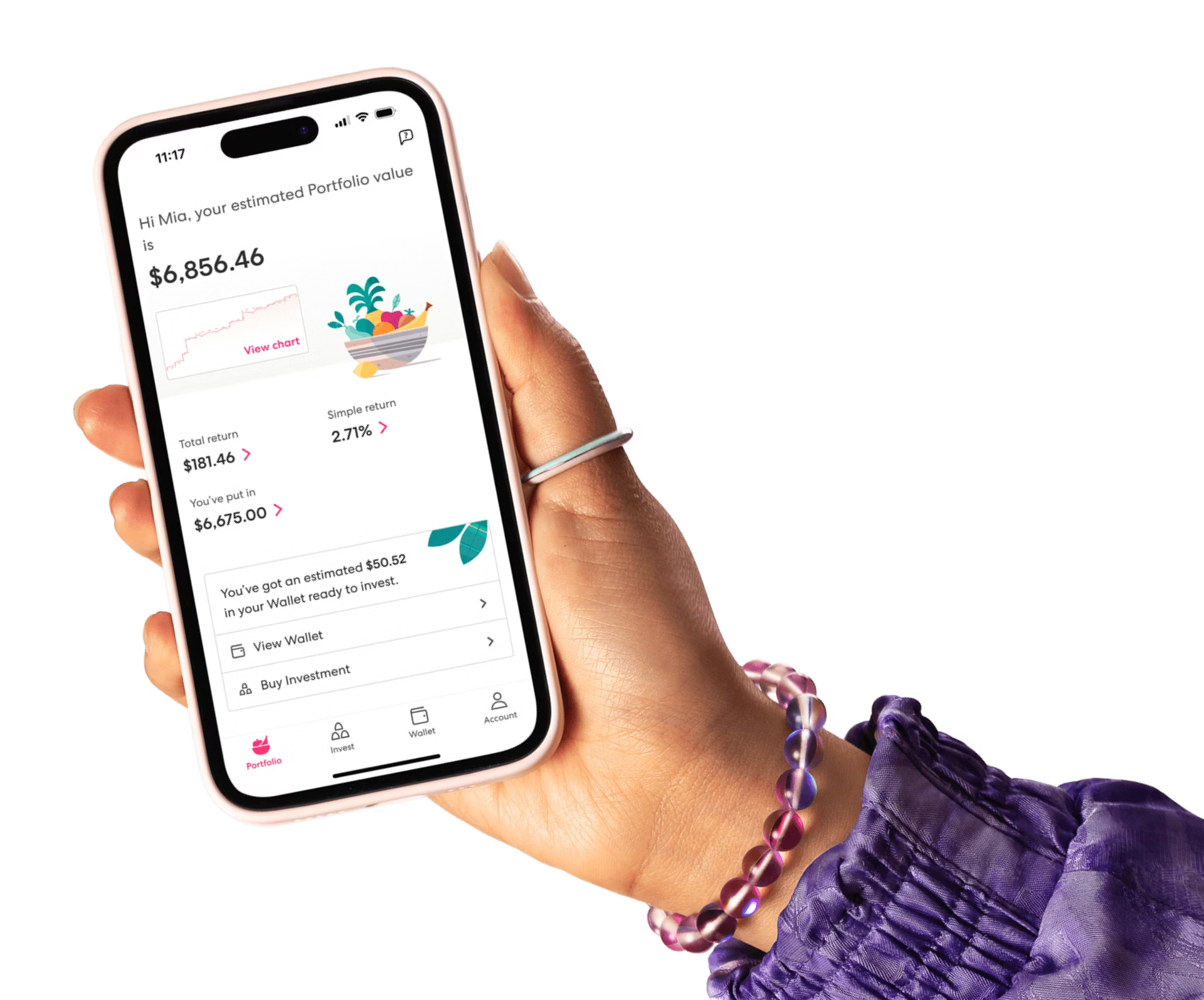Little by little or all at once?
There are two different ways you can invest your money. The first way is to invest a little bit each week. The other is to save up for a few weeks or months, then invest a big chunk all at the same time.

These two approaches might look the same, but they’re actually a bit different. And we reckon the first way is the way to go. Here’s why:
Time, time, time
One of the golden rules of investing is that time is your friend. The longer you invest for, the better your returns are likely to be. You can see this in action by looking at pretty much any fund’s growth over time. Over one year, you can get some good growth, but over 10, 20, or 30 years, you can see some really amazing growth.
We also know that little decisions can have a big impact as they stack up over time, such as our favourite example, compound interest. The same principle applies to time. If you invest $10 a week, your first $10 will have been invested for 10 weeks by week number 10. Your second $10 will have been invested for 9 weeks, and so on. If you saved up and invested $100 all at once after 10 weeks, there is no first $10. You’ve had nothing invested at all until the day you buy shares for $100.
This may look small, but it adds up over time. The faster you get your money invested, the more time it will spend in the market—and that’s more time out there working for you.
Dollar-cost averaging
Investing regularly helps protect you from the ups and downs of the sharemarket through dollar-cost averaging. This is the idea that your average price is more important than any one price you pay. If you invest $1,000 at the end of the year, then your average purchase price for the year is going to be whatever the price happened to be on that day. But if you invest $20 a week, your average price may be lower, because you would have picked up some shares when they were cheaper. A lower price means better returns—which ultimately means more money in your pocket!
Make a habit
The other side of this is around habit forming. The more often you do something, the easier it is to keep on doing. As an easy example, think of brushing your teeth (which you hopefully do every day) versus taking your car in for a warrant (every few months). You know to brush your teeth every day, because it’s part of your routine. But you probably need to set a reminder to take your car in for a warrant, or check the sticker on your windscreen to see when it’s due.
So that’s another advantage of investing small amounts, more often—it builds a more regular habit, which means it’s easier to remember and integrate into your day-to-day life.
Take out some of the pain
$10 every week and $100 every 10 weeks are the same amount of money. That’s just maths. But it’s a lot easier to part with $10 than it is to part with $100. Giving up $10 for your savings isn’t giving up much—you could maybe buy a kebab, or a t-shirt from The Warehouse. In the scheme of things, those are fairly easy things to sacrifice.
$100 feels like more of a sacrifice. With $100, you could have a nice meal out, or buy an Xbox game, or even just pay for a big chunk of your grocery bill. Those things are a lot harder to turn down than a kebab!
By investing small amounts, more often, you feel like you’re sacrificing less. We know that a lot of investing habits are driven by emotions, so it’s really important to tune your habits to make sure you’re getting the right feeling out of your decisions.
To wrap up
So invest small, invest often. Have a think about how much you can afford, then think about what the best frequency is for you. One really easy way is to just set up an automatic payment for the day you get paid—then it’s like your taxes and KiwiSaver in that you never even see it! That way, you’re spending as much time in the market as possible, and you always know you can afford it. It creates a habit, and the sacrifice seems small. All in all—pretty cool.
Ok, now for the legal bit
Investing involves risk. You aren’t guaranteed to make money, and you might lose the money you start with. We don’t provide personalised advice or recommendations. Any information we provide is general only and current at the time written. You should consider seeking independent legal, financial, taxation or other advice when considering whether an investment is appropriate for your objectives, financial situation or needs.
Join over 800,000 investors



